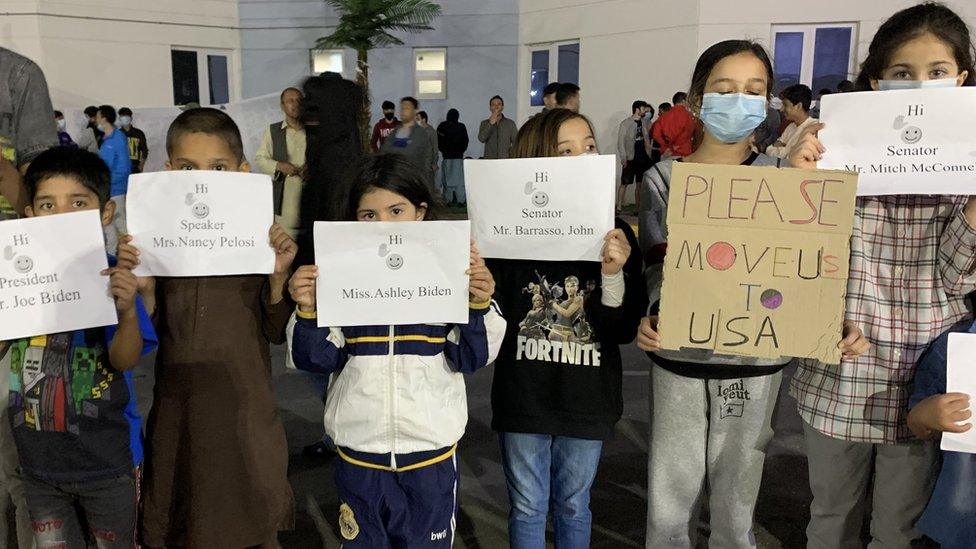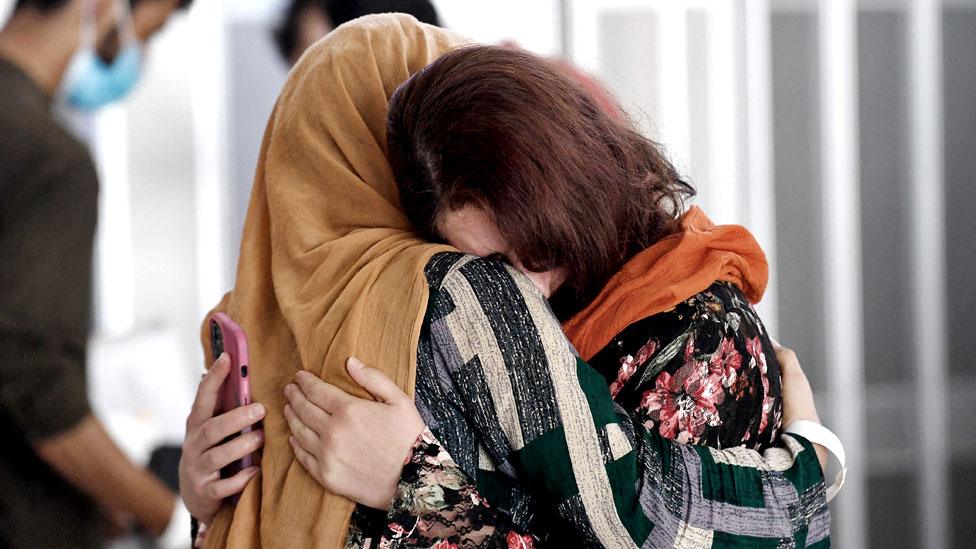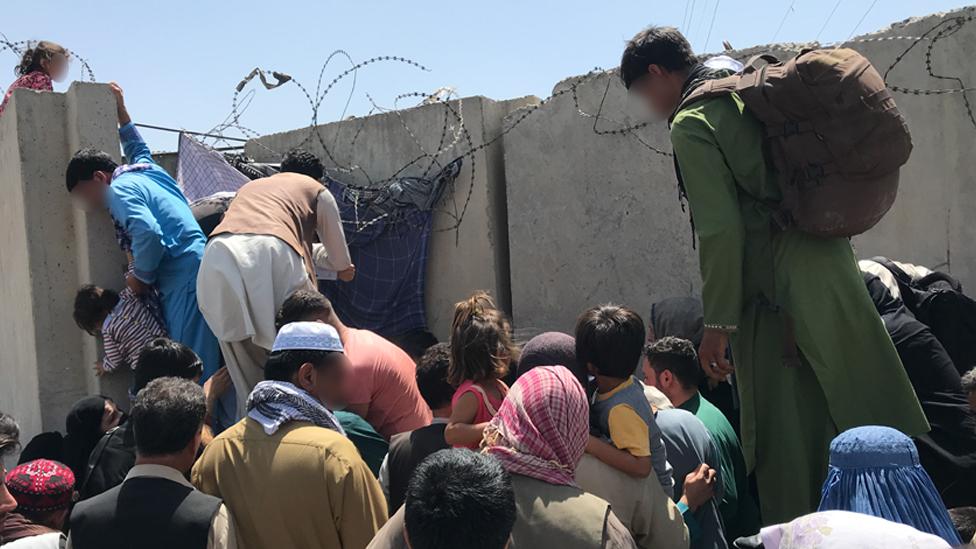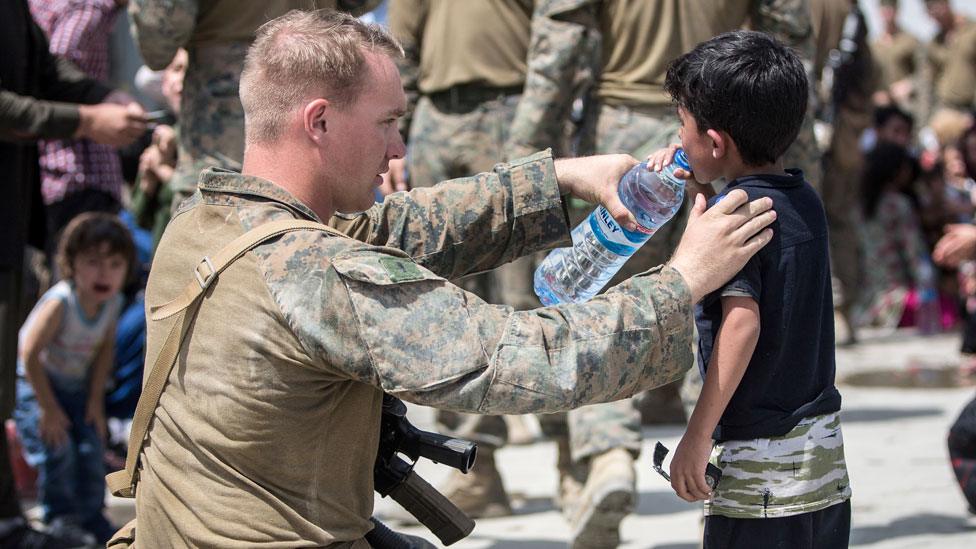UAE arbitrarily detaining 2,400 Afghan asylum seekers - report
- Published

Children at one of the facilities housing the Afghans urged the US to resettle them at a protest in February 2022
The United Arab Emirates is arbitrarily detaining at least 2,400 Afghan asylum seekers, Human Rights Watch says.
The adults and children being held at a makeshift facility in Abu Dhabi were evacuated from Kabul following the Taliban takeover in August 2021.
HRW said they were living in "cramped, miserable conditions" and "stranded in limbo" with no hope of being resettled.
The UAE denied that conditions were poor and said it was working with the US to finish the resettlement process.
More than 10,000 other Afghans who were flown to the UAE have reportedly been resettled in the US, Canada and elsewhere, while a further 70,000 were evacuated directly to the US before American troops left Kabul.
The Afghans flown to Abu Dhabi following the Taliban takeover were housed in two converted apartment complexes known as Emirates Humanitarian City and Tasameem Workers City.
HRW said in a report published on Wednesday that it had spoken to 16 Afghans detained at Emirates Humanitarian City, external, including eight who had previously worked at some point for US government-affiliated entities or programmes in Afghanistan.
They reported constraints on their freedom of movement, lack of access to fair and effective refugee status determination, lack of adequate access to legal counsel, inadequate education for children, and no psychosocial support.
The detainees also described overcrowding, decaying infrastructure and insect infestations, according to the US-based campaign group.
One unnamed Afghan was quoted as saying that Emirates Humanitarian City was "exactly like a prison", while another described a "widespread mental health crisis among residents".
Under international law and UN Refugee Agency guidance, asylum seekers and migrants should not be detained for administrative purposes unless it is necessary and proportional to achieve a legitimate aim, and only in the absence of viable alternatives.
HRW called on the UAE to release the detainees and provide access to fair and efficient processes for determining their status and protection needs.
"Governments should not ignore the shocking plight of these Afghans stranded in limbo in the UAE," said Joey Shea, the group's UAE researcher.
"The US government in particular, which co-ordinated the 2021 evacuations and with whom many evacuees worked before the Taliban takeover, should immediately step up and intervene to provide support and protection for these asylum seekers."
A UAE official told the BBC that evacuees from Afghanistan had "received a comprehensive range of high-quality housing, sanitation, health, clinical, counselling, education, and food services to ensure their welfare".
They also said the UAE was continuing to work with US authorities to "resettle the remaining evacuees in a timely manner".
"The UAE continues to do everything it can to bring this extraordinary exercise in humanitarian resettlement to a satisfactory conclusion. We understand that there are frustrations and this has taken longer than intended to complete."
The US state department said there was an "enduring" US commitment to resettle all eligible Afghans, including those at Emirates Humanitarian City.
- Published24 August 2021

- Published7 December 2021

- Published23 August 2021
